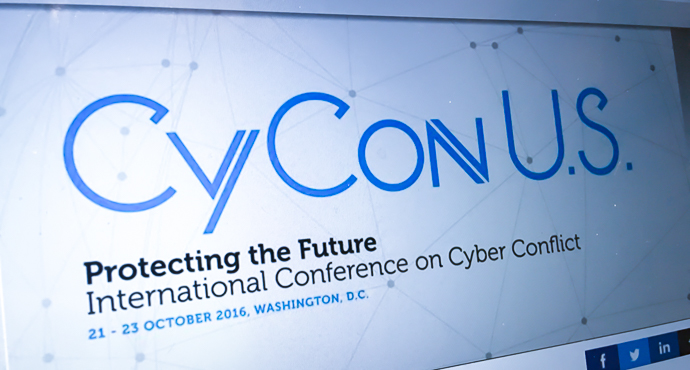
CyCon U.S. 2016.
The inaugural meetings of the International Conference on Cyber Conflict (CyCon US) were held in Washington, DC, late last week and through the weekend. The conference focused on the theme of protecting the future. Sponsored by the Army Cyber Institute at West Point in collaboration with the NATO Cooperative Cyber Defense Center of Excellence, the conference sought to "create greater information exchange among industry, academia, and government entities at both the national and international levels."
Sessions covered topics including technical challenges, international cooperation, the kind of conflict we can expect to see in cyberspace, and assessments of new legal and regulatory standards and frameworks.
The CyberWire was able to attend Saturday's sessions. The presentations and the people we spoke with had the previous day's massive denial-of-service attack against DNS provider Dyn very much in mind. It served as an immediate reminder of how nation-state conflict in cyberspace had become a real and present danger. And the participants were willing to entertain some dramatic revisions to much conventional thinking about cyber conflict: sharpening the definition of "critical infrastructure," recognizing that cyber conflict occupies a deniable gray area between traditional espionage and clear acts of war, realizing that US and NATO adversaries seem to have adopted new and more aggressive rules of engagement, and addressing the need to prepare for high-end cyber conflict.
That last point was particularly sobering. Who knew that Ted Koppel, one of the speakers, could sound so much like a prepper?
